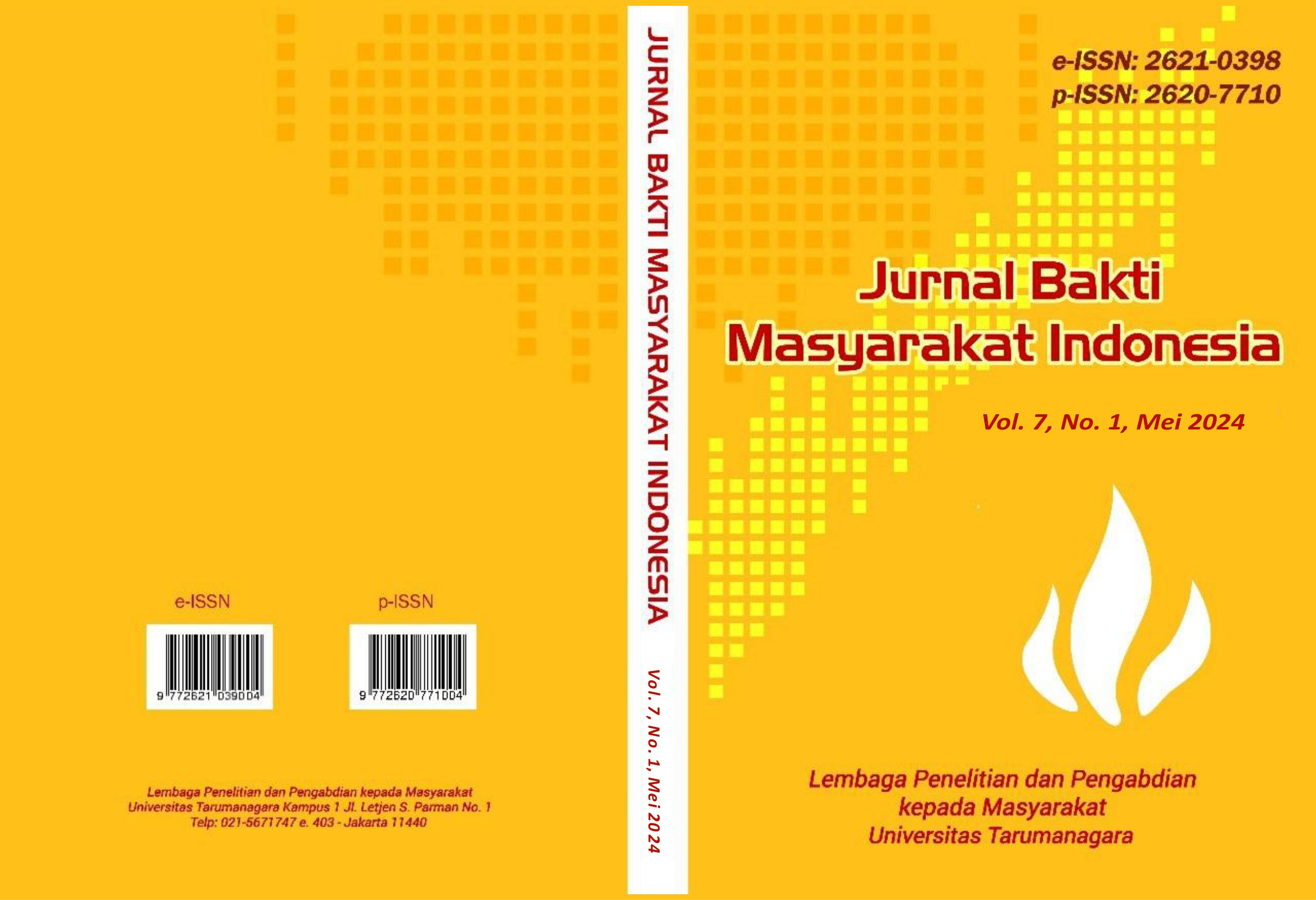BERKENALAN DENGAN DASAR ETIS ETIKA BISNIS MENURUT ETIKA EMMANUEL LEVINAS
Main Article Content
Abstract
The development of information technology and economic globalization are changing perceptions, practices and core values in business. It is increasingly realized that the priority of business is not just seeking personal or corporate profit by any means necessary but rather must adhere to ethical business principles. A number of parties are calling for the spectrum of business ethics to be broadened and its application to be radical because future economic practices do not just require conventional business ethics but rather radical, relevant, reflective and brilliant models of business ethics. A model of business ethics that has a new perspective; a model of business ethics that appreciates multiple points of view; a business ethics model that injects critical awareness so that business people have autonomous ethical awareness. Levinas's ethical thinking was chosen as a frame of reference in introducing business ethics in this PKM because radical. For Levinas, business ethics is not a choice but an ethical obligation that is absolute and asymmetrical. Ethics originates from moral demands for every human being. But the moral basis is not in each individual or corporation but in others, in the environment, in society at large. That morally every person and every company has an ethical responsibility to be responsible for the needs and interests of other people. This kind of ethical demand is called radical because it places ethical weight not on individuals or corporations but on Others who are outside individuals and corporations. This PKM was carried out together with PT. Crown Pratama as partner. The aim of this PKM is to broaden the understanding of PKM partner staff and employees about the importance of business ethics and its application in business practices. Business ethical values such as honesty, fairness, responsibility and the interests of society as a whole cannot be defeated for personal or corporate gain. The results of this PKM show that 75.6% said they were able to understand and be useful for individuals and corporations.
ABSTRAK
Perkembangan teknologi informasi dan globalisasi ekonomi mengubah persepsi, praktik, dan nilai-nilai utama dalam bisnis. Sejumlah pihak menyerukan agar spektrum etika bisnis diperluas dan penerapannya perlu radikal karena praktik ekonomi masa depan tidak sekadar membutuhkan etika bisnis konvensional melainkan model etika bisnis yang radikal, relevan, reflektif, dan brilian. Sebuah model etika bisnis yang memiliki cara pandang baru; sebuah model etika bisnis yang mengapresiasi banyak sudut pandang; sebuah model etika bisnis yang menginjeksi kesadaran kritis agar para pelaku bisnis memiliki kesadaran etis yang otonom. Pemikiran etika Levinas dipilih sebagai kerangka acuan dalam memperkenalkan etika bisnis dalam PKM ini secara radikal. Bagi Levinas, etika bisnis bukan sebuah pilihan melainkan sebuah kewajiban etis yang bersifat mutlak dan asimetris. Tetapi dasar moral tersebut bukan pada diri masing-masing individu atau korporasi melainkan pada Yang Lain, pada lingkungan, pada
masyarakat luas. Bahwa secara moral setiap orang dan setiap perusahaan memiliki tanggung jawab etis untuk bertanggungjawab atas kebutuhan dan kepentingan orang lain. Tuntutan etis semacam ini disebut radikal karena meletakkan bobot etis tidak pada individu atau korporasi melainkan pada Yang Lain yang berada di luar individu dan korporasi. PKM ini dilakukan bersama PT. Crown Pratama sebagai mitra. Tujuan PKM ini adalah memperluas pemahaman para staf dan karyawan mitra PKM tentang pentingnya etika bisnis dan penerapannya dalam praktik berbisnis. Nilai-nilai etika bisnis seperti kejujuran, keadilan, tanggung jawab, dan kepentingan masyarakat secara keseluruhan tidak bisa dikalahkan demi keuntungan personal atau perusahaan. Hasil PKM ini menunjukkan bahwa 75,6% menyatakan mampu memahami dan berguna bagi individu dan korporasi.
Article Details
Section

This work is licensed under a Creative Commons Attribution-NonCommercial-ShareAlike 4.0 International License.
This work is licensed under a Jurnal Bakti Masyarakat Indonesia https://creativecommons.org/licenses/by-nc-sa/4.0/
How to Cite
References
Ardhi, S. (2023). Guru Besar UGM Sampaikan Tantangan Kompetensi Etka Bisnis di Era Digital. Diakses dari https://feb.ugm.ac.id/id/berita/3031-pentingnya-melawan-pelanggaran-etika-bisnis-di-era-digital
Bevan D., Corvellec H. (2007). The impossibility of corporate ethics: for a Levinasian approach of managerial ethics. Bus Ethics: A Eur Rev 16(3):208–219
Blok, V. (2017). Levinasian Ethics in Business, August 2017, DOI: 10.1007/978-3-319-23514-1_97-1
Etzioni, A. (1991). Reflection On Teaching of Business Ethics. Business Ethics Quarterly.Vol. 1, No. 4, Pedagogical Issues in Business Ethics (Oct., 1991), pp. 355-365. Diakses dari https://www.jstor.org/stable/3857602
Jacob, K. (2023). What is Business Ethics and Why is it Important. 10th Feb, 2023. Diakses dari https://www.upgrad.com/blog/what-is-business-ethics-and-why-is-it-so-important/
Levinas, E. (1969). Totality and infinity, Duquesne, Pittsburgh
Levinas, E. (1974). Otherwise than being. Or beyond essence. Duquesne, Pittsburgh
Magnis-Suseno, F. (1987). Etika Dasar: Masalah-masalah Pokok Filsafat Moral. Yogyakarta: Kanisius.
Magnis-Suseno, F. (2016). 12 Tokoh Etika Abad 20. Yogyakarta: Kanisius.
Mansell, S. (2008). Proximity and rationalisation: the limits of a Levinasian ethics in the context of corporate governance and regulation. J Bus Ethics, 83:565–577
Painter-Morland, M. (2010). Questioning corporate codes of ethics. Bus Ethics: A Eur Rev
Pramana, A. (2022). Peluang dan Trend Industri Pengemasan di Indonesia. 26 April 2022. Diakses dari https://www.itb.ac.id/berita/detail/58603/peluang-dan-tren-industri-pengemasan-di-indonesia
Santoso, (2021). Bahaya Pelanggaran Etika Bisnis di Era Digital. 17 Nopember 2021. Diakses dari https://bisnis-s1.stekom.ac.id/informasi/baca/Bahaya-Pelanggaran-Etika-Bisnis-Di-Era-Digital/010c1687e449ea3a835019d1dc6862c42f7eacfa
Schroeder, K. (2019). 3 Reasons Why Business Ethics Is Important, october 5 2021. Diakses dari https://www.redlands.edu/study/schools-and-centers/business/sbblog/2019/may-2019/3-reasons-why-business-ethics-important/
Spence, L.J. (2022). Radical, Relevant, Reflective and Brilliant: Towards the Future of Business Ethics, Journal of Business Ethics, 180, 829–834. : dipublished 6 October 2022. Diakses dari https://doi.org/10.1007/s10551-022-05238-3
Suveera, (2006). Relevance of Ethics in Business Education. Diakses dari dari https://www.oecd.org/site/imhe2006bis/37464206.pdf
Temm, S. (2021). Importance of business ethics. Global Journal of Business Management Vol. 15 (2), September, 2021. Diakses dari https://www.internationalscholarsjournals.com/articles/importance-of-business-ethics.pdf
Ten Bos R.; Willmott, H. (2001). Towards a post-dualistic business ethics: interweaving reason and emotion in working life. J Manag Stud 38(6):769–793
van de Ven, B. (2005). The (im)possibility of a Levinasian business ethics: towards an interpretation of the ethicalin business. Working paper, Tilburg University. Available via https://www2.le.ac.uk/departments/man agement/documents/research/research-units/cppe/conf erence-pdfs/levinas/vandeven.pdf

